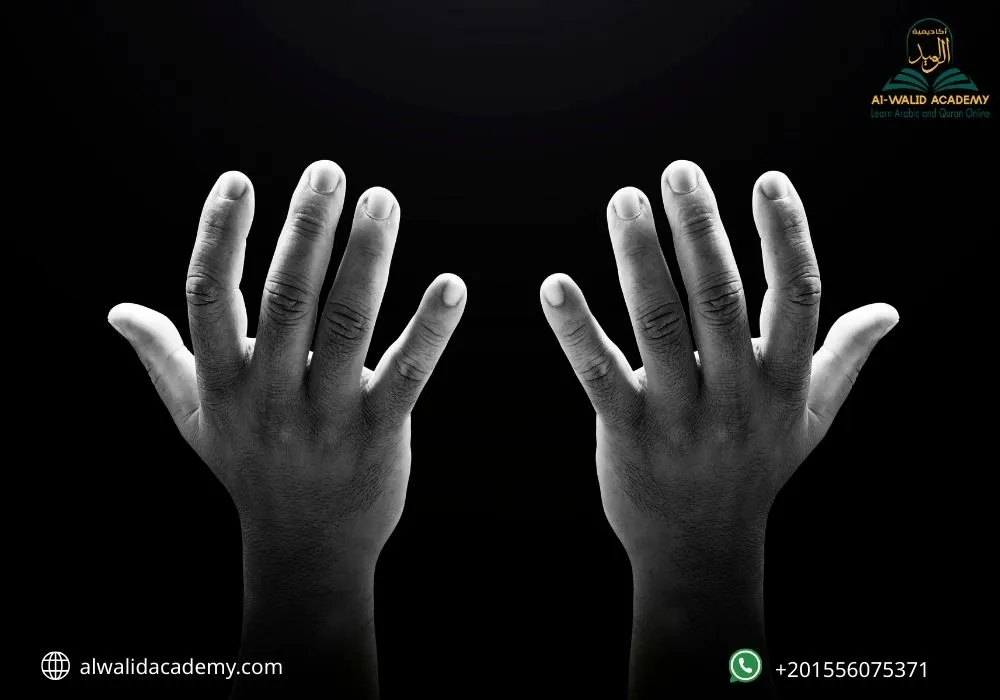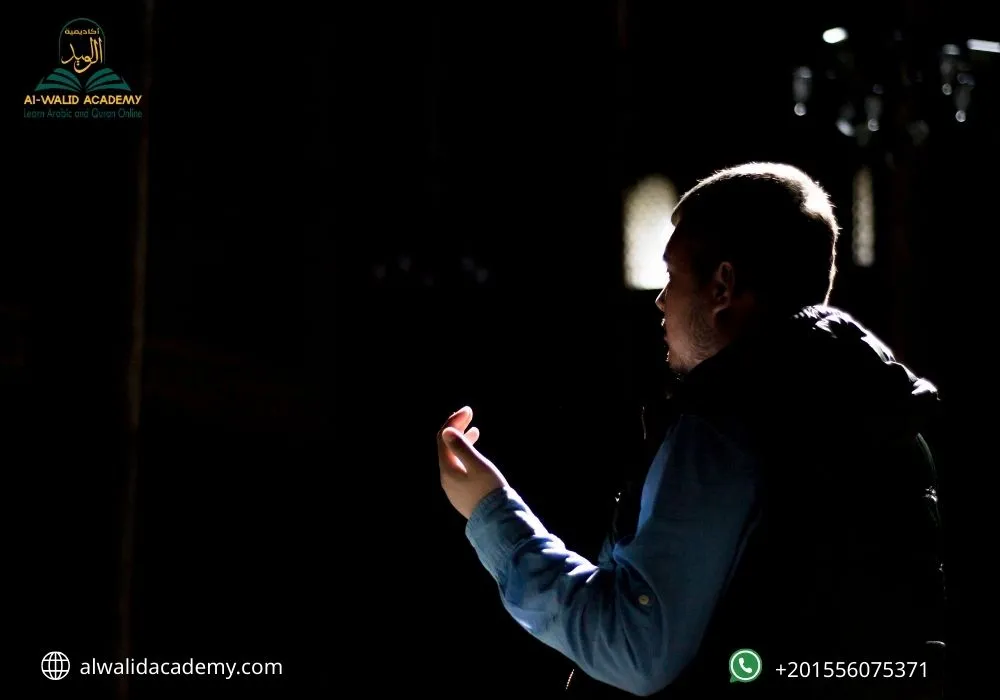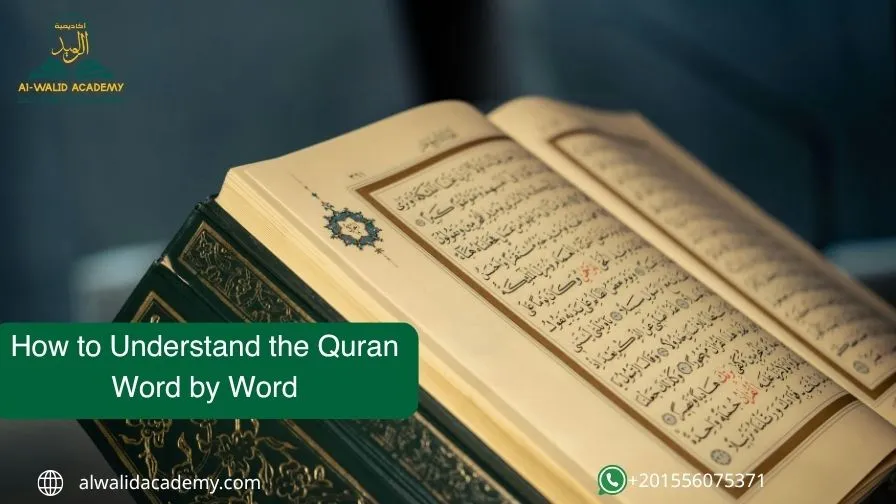If you want to know how to get forgiveness from Allah with a pure heart and find peace of mind, this article is just for you! Here, we’ll share simple and practical steps to help you get closer to Allah and wipe away your sins easily.
Understanding Forgiveness in Islam
Before we dive into the steps to seek forgiveness, it’s important to understand what forgiveness really means in Islam.
Forgiveness isn’t just about wiping away sins; it’s also a way for your heart to feel at peace and get closer to Allah.
Realizing Allah’s mercy and forgiveness gives you hope and encourages you to change your ways and start fresh with sincerity.
The Concept of Allah’s Mercy and Forgiveness
No matter how big a mistake may seem, Allah’s mercy is greater—what truly matters is that your repentance comes from the heart.
Allah says in the Quran:
"And My mercy covers everything." (Al-A’raf: 156) — وَرَحْمَتِي وَسِعَتْ كُلَّ شَيْءٍ”
This means Allah’s mercy covers everything, and no matter what you’ve done, you can turn back to Him with a sincere heart and find forgiveness.
The first step is believing that Allah is Most Forgiving and Most Merciful, and that true repentance can truly transform your spiritual life.
Deepen your connection with Allah and enhance your Quran Memorization Course experience to truly understand how to seek forgiveness and implement it in your daily life.
Difference Between Minor and Major Sins
To seek forgiveness correctly, you need to understand the difference between sins:
-
Minor Sins: Everyday mistakes that can be forgiven through regular worship or simple repentance.
Examples: backbiting, small lies, delaying prayers without a valid reason, or any actions that displease Allah unintentionally.
-
Major Sins: Serious sins with severe warnings in the Quran and Sunnah.
Examples: associating partners with Allah (shirk), adultery, murder, drinking alcohol, disrespecting parents, or deliberately skipping prayers.
Major sins require sincere repentance, which includes:
-
True regret for the sin.
-
Stopping the sin immediately.
-
Firm intention not to return to it.
-
Restitution if the sin involved someone else’s rights.
The Prophet said:
"Performing the five daily prayers, observing Fridays, and fasting during Ramadan help erase sins committed in between, as long as you avoid major wrongdoings.”
This shows that minor sins can be forgiven through daily worship, but major sins require genuine repentance and real effort.
How to get forgiveness from Allah
Forgiveness isn’t just words you say—it’s a way of life. To find true peace and forgiveness, it’s important to follow clear, practical steps consistently in your daily life. Here’s a complete guide for every step in detail.
Sincere Repentance (Tawbah)
True repentance is the first and most important step to seeking forgiveness. It’s not just words; it requires real regret and a sincere desire to change.
Practical steps for sincere Tawbah:
-
Admit the sin: Acknowledge to yourself and to Allah that you’ve made a mistake. The first step toward forgiveness is admitting your sin, no matter its size.
-
Feel real remorse: don’t just say “I’m sorry”—understand the impact of your actions and genuinely regret them.
-
Turn to Allah in prayer: Pray from your heart. You don’t need long or complicated phrases; heartfelt sincerity is what counts. Simple words like: “My Lord, forgive my sins” or “O Allah, make me among the repentant” are enough.
-
Resolve not to return to the sin: Make a practical plan to avoid the causes of the sin. If it’s a habit, change your daily routine.
-
Restore the rights of others: If the sin affected someone else, try to correct the wrong or compensate them—this shows your repentance is sincere.
The Prophet (peace be upon him) said: “All humans make mistakes, and the best among those who sin are the ones who sincerely repent.” (Tirmidhi)
This means no matter how many mistakes you’ve made, sincere repentance will lead to Allah’s forgiveness.
Access a wide range of Quran courses online to strengthen your connection with Allah and consistently practice Tawbah and Istighfar.
Making Dua for Forgiveness (Istighfar)
Dua is the most direct way to get closer to Allah and ask for forgiveness. The key is to make it from the heart, not as a routine. Practical tips:
-
Consistently seek forgiveness daily: Repeat “Astaghfirullah” after prayers or throughout the day.
-
Use supplications from the Quran and Sunnah:
- “Astaghfirullaha al-‘Azim alladhi la ilaha illa Huwa, al-Hayy al-Qayyum, wa atubu ilayh”
- “Allahumma inni astaghfiruka min kulli dhanbin wa atubu ilayk”
- “Allahumma innaka ‘afuwwun tuhibbul-‘afwa fa’fu anni”
3- Focus while praying: Imagine Allah close to you and feel the peace in your heart. The more sincere your dua, the closer Allah becomes.
4- Make a list of your sins: If you have many sins, write them down and ask Allah for forgiveness one by one—this helps your heart focus and be sincere.
Our Quran Classes for Adults help you learn sincere repentance and Istighfar through proper recitation and understanding of the verses.

Regretting Sins and Not Returning to Them
Repentance isn’t real if you go back to the same sin. To ensure Allah’s forgiveness:
-
Feel genuine remorse: Reflect on how the sin affects your life and spiritual state. Don’t just say, “I sinned”—think, “I lost something because of this.”
-
Have a practical plan to change: If it’s a habit, change your routine and stay away from triggers.
-
Restore rights if the sin affected someone else: Repair the relationship or compensate them. This shows sincerity.
-
Keep repenting continuously: If you slip again, don’t give up. Turn back to Allah and ask for forgiveness; He is Most Forgiving and Most Merciful.
After every prayer, say a specific Istighfar, and before sleeping, review your day, thank Allah, and ask forgiveness.
With Quran lessons for Kids online, children can start learning the Quran with Tajweed from a young age, building a strong foundation for seeking Allah’s forgiveness.
Learn Quran, Arabic, and Islamic Studies with certified teachers in fun, interactive, and personalized sessions. Join thousands of students around the world and begin your path today!
Powerful Duas for Forgiveness
After understanding the steps of repentance and regret, it’s important to learn how to get forgiveness from Allah through effective duas that help you draw closer to Him and erase your sins.
Dua isn’t just words; it’s a spiritual connection between your heart and Allah. The more sincere your heart, the faster Allah forgives you and fills you with peace.
Istighfar Supplications from the Quran
The Quran is full of verses and supplications teaching us to ask for forgiveness. Here are some practical duas you can recite daily:
- "أستغفر الله العظيم الذي لا إله إلا هو الحي القيوم وأتوب إليه", “I seek forgiveness from Allah the Mighty, there is no god but Him, the Ever-Living, the Sustainer, and I repent to Him.”
This is a comprehensive dua covering all sins, big and small. You can repeat it after each prayer or before sleeping, focusing on each sin as you say it.
- "ربنا لا تؤاخذنا إن نسينا أو أخطأنا" (البقرة: 286), “Our Lord, do not punish us if we forget or make a mistake.”
It is perfect for when you sin unintentionally or forget a duty, When you feel you have fallen short in your duties to Allah, pause and recite this dua with focus.
- "واغفر لنا ذنوبنا وإسرافنا في أمرنا" (آل عمران: 147), “And forgive us our sins and our excesses in our affairs.”
It covers daily mistakes and lapses in worship, recite it every day before starting any important task as a reflection and request for forgiveness.
Don’t just read the dua—feel each word and imagine Allah close to you. It is preferred to create a daily routine: after each prayer, recite a specific istighfar. This builds a lasting spiritual habit.
Short and Simple Duas for New Muslims
For new Muslims or those still learning, long duas might feel difficult. Here are some short and simple but powerful duas:
-
"أستغفر الله", “I seek forgiveness from Allah.”
It is very simple yet extremely powerful, you should repeat it after any action, even during work or study, to keep your heart clean.
-
"اللهم اغفر لي", “O Allah, forgive me.”
It is direct and easy to say anytime, Try to recite it at least 10 times daily; it brings great peace of mind.
-
“O my Lord, please forgive all my mistakes and sins.” رب اغفر لي ذنوبي”
Focus on all your sins in just one minute. Before sleeping, take one minute to reflect on your day and ask for forgiveness for every mistake.
Join our Online Quran Recitation Course to improve your recitation skills while reflecting on the meanings of forgiveness and mercy in every verse.

Acts That Lead to Allah’s Forgiveness
If you want to know how to get forgiveness from Allah, it’s not just about words and dua.
Your life also needs to be full of good deeds. Allah loves those who do good, and sins are forgiven through righteous actions, not just regret and supplication.
Let’s dive into the most important deeds that truly bring you closer to Allah.
Performing Daily Prayers on Time
Prayer is the pillar of Islam, and keeping up with your prayers on time is a clear sign of commitment.
Prayers erase daily sins and strengthen your connection with Allah, especially when performed on time. You can achieve this through:
-
Setting an alarm for each prayer to avoid being late.
-
Focusing during prayer and trying to understand every verse and dua.
-
Begin by sincerely asking Allah to forgive any past errors before you continue your prayers or acts of worship.
If you ever miss or neglect a prayer, ask for forgiveness immediately and recommit, this is a key part of How to get forgiveness from Allah.
Fasting and Its Role in Forgiveness
Fasting is not just abstaining from food and drink; it’s a powerful way to wipe away sins and purify your soul.
The Prophet said: “Fasting is a shield”, so fasting with sincerity brings protection and forgiveness from Allah, and to do it, you should:
-
Fast the “White Days” (13th, 14th, 15th of each lunar month) or Mondays and Thursdays.
-
Focus on avoiding sins while fasting, not just abstaining from food and drink.
-
Repeat istighfar often during fasting.
Giving Charity and Helping Others
Charity is not just money; it can be your time, effort, or even a kind word. Charity wipes away sins and brings you closer to Allah directly, while giving you inner peace and spiritual satisfaction. Here's Practical Steps:
-
Dedicate a portion of your income to charity regularly.
-
Help people with your time or effort, like visiting the sick, helping neighbors, or giving useful advice.
-
Make charity a daily or weekly habit, not just a one-time act.
Best Times to Seek Forgiveness
If you want to know how to get forgiveness from Allah, it’s not just about saying words or making dua.
You also need to know the times when your prayers are closest to being accepted by Allah.
There are special moments when His mercy is abundant and forgiveness comes easier and faster.
During Tahajjud (Last Third of the Night)
Tahajjud is one of the most powerful times to get closer to Allah. The Prophet said that the last third of the night is a time of mercy and forgiveness, and supplications made then are often accepted. You can do the most of it by:
-
Trying to wake up half an hour before Fajr or at any convenient time during the last third of the night.
-
Focusing on your dua and asking Allah for forgiveness for any sins you’ve committed.
-
Keeping repeating istighfar and sincere prayers, reminding yourself of your desire to correct your mistakes.
On Fridays and During Ramadan
Fridays hold a special moment when prayers are more likely to be accepted, and the entire month of Ramadan is filled with countless opportunities for mercy and forgiveness. To make the most of it:
-
Focus on making dua after Asr prayer or before Maghrib on Fridays.
-
During Ramadan, make extra effort to increase your istighfar, recite more Quran, and do good deeds for others.
-
Make dhikr part of your daily routine, even just short phrases after each prayer.
After Prayers and During Times of Hardship
The moments after prayer or during difficult times are golden opportunities to seek forgiveness.
Dua after prayer is highly recommended, and asking for forgiveness during hardship holds great value in Allah’s eyes. Here is Effective Approach:
-
After each prayer, take a minute to ask forgiveness for any past sins.
-
When facing problems or stress, focus your dua and ask Allah for mercy and forgiveness.
-
Continue istighfar consistently, not just once a day
Begin your journey with Learning Arabic for Beginners to understand the Quran better, enhancing your awareness of Allah’s guidance and forgiveness.
Common Mistakes People Make When Seeking Forgiveness
Many of us think that asking for forgiveness is just about saying words or making a quick dua, and that can make us miss the real chance to get closer to Allah and receive His mercy.
If you want to know how to get forgiveness from Allah properly, you need to avoid these mistakes and learn the correct way to repent.
Explore the meanings behind Allah’s mercy in our Learn Quran Tafseer Online sessions, giving you a deeper understanding of How to get forgiveness from Allah.
1-Treating Tawbah as Temporary
Some people repent quickly but then go back to the same sins, which makes their repentance ineffective.
When repentance is temporary, your heart isn’t focused and isn’t truly ready to change your behavior, and to handle it:
-
Take your time and reflect deeply on the sins you’ve committed before repenting.
-
Make a clear plan to avoid repeating the same mistakes, like staying away from situations that trigger them.
-
Stay consistent with your repentance.
2. Repeating Sins Without Real Regret
Genuine regret is essential for repentance, without it any attempt to repent is mostly superficial.
If you keep repeating sins without feeling real remorse or trying to change, your prayers and dua will have less impact, to correct it:
-
Every time you slip, acknowledge your mistake to yourself and to Allah, and sincerely ask for forgiveness.
-
Understand the root cause of the sin and work on fixing it.
-
Continuously say istighfar after each mistake.
3. Ignoring the Importance of Sincerity
Many people ask for forgiveness without a sincere heart or real intention, which reduces the effect of their prayers.
You must know that Allah only accepts repentance that comes from sincere intentions; any dua without a true heart won’t lead to full forgiveness, and to be sincere:
-
Before any dua or istighfar, focus your heart and mind on genuinely wanting to repent and correct your mistakes.
-
Let every good deed be accompanied by pure intention for Allah, not for show or pride.
-
Sincerity is the key to understanding how to get forgiveness from Allah deeply and effectively.
How Forgiveness Impacts Your Life

Forgiveness from Allah isn’t just a temporary feeling of relief—it has a real impact on every part of your life: your heart, mind, mental health, and even your relationships.
Peace of Heart and Inner Calm
When you sincerely ask for forgiveness:
-
Your heart feels calmer, and the mental pressure from past sins and worries decreases.
-
You feel ready to start a fresh chapter without constant guilt or regret.
-
Daily istighfar makes your mind lighter and helps you focus better in your daily life.
Before sleeping, spend 5 minutes reflecting on your mistakes and sincerely asking Allah for forgiveness—you’ll feel the difference immediately.
Improve your comprehension with our Arabic Language Course and understand the powerful messages of forgiveness in the Quran.
Improving Relationships with Others
Forgiveness isn’t just between you and Allah—it also affects how you deal with people:
-
Feeling Allah’s mercy and forgiveness teaches you patience and tolerance with those around you.
-
It reduces conflicts and arguments, making your relationships stronger and calmer.
-
Practicing forgiveness towards others makes your heart lighter and happier.
If someone upsets you, remember Allah’s forgiveness for you and try to forgive them—you’ll feel the relief instantly.
Read about: Hadith About Backbiting
Strengthening Willpower and Self-Control
Those who repent and keep asking for forgiveness:
-
Develop stronger self-control and can resist bad habits or repeated mistakes.
-
Continuously repenting and making istighfar teaches patience and calm when facing daily challenges.
If you have a bad habit or recurring sin, focus on daily istighfar and avoid situations that trigger it. This will help you gain better control over yourself.
Personal and Spiritual Growth
Forgiveness opens doors for both personal and spiritual development:
-
You feel more at peace and confident, making it easier to face challenges.
-
Someone who keeps their heart pure and regularly seeks forgiveness can focus better and achieve goals without constant guilt or anxiety.
-
Forgiveness helps balance your spiritual, mental, and social life.
Dedicate daily or weekly time to reflect on your life and ask for forgiveness, focusing on real change. This will improve your life on every level.
Enroll in our Islamic Studies Course to understand the principles of repentance, mercy, and moral guidance in daily life.
Read about: Dua for Making Things Easy
Learn Quran, Arabic & Islamic Studies Online with Al Walid Academy
If you want to learn the Quran properly and master Arabic and Islamic studies in an easy and flexible way, Al Walid Academy is the perfect choice.
Established in 2020 with a passion for online Quran and Islamic education, our academy offers interactive and flexible learning with qualified native tutors, allowing you to learn from anywhere at affordable fees.
Why choose Al Walid Academy?
-
Experienced tutors graduated from Al Azhar University, ensuring trustworthy and accurate teaching.
-
Carefully organized content to make learning Quran with Tajweed, Arabic, and Islamic studies simple and effective.
-
Interactive learning environment that keeps you motivated and engaged.
-
Full online flexibility: learn anytime, anywhere, according to your schedule.
-
Learn with flexible and affordable programs without ever compromising on the quality of your education.
Start your educational journey today!
Enroll with Al Walid Academy and start learning Quran, Arabic, and Islamic studies in a fun, effective, and hands-on way
alwalidacademy42@gmail.com and +201556075371
Conclusion
Forgiveness from Allah isn’t just about saying words—it’s about truly reflecting, feeling sincere remorse, and making real changes in your life.
Understanding how to get forgiveness from Allah means embracing daily istighfar, staying consistent in repentance, and letting the lessons of mercy, patience, and compassion guide your actions.
When you do this, you not only purify your heart but also strengthen your mind, improve your relationships, and grow personally and spiritually.
Make forgiveness a continuous journey, and you’ll experience inner peace, self-control, and a meaningful, balanced life.
Allah’s mercy is always within reach, and every sincere effort brings you closer to a life full of contentment, purpose, and true tranquility.
FAQs
What’s the best way to start asking for Allah’s forgiveness?
Start with sincere repentance—feel genuine regret for your past mistakes and decide not to repeat them.
How often should I ask for forgiveness?
You can do it every day, after prayers, before sleeping, or anytime you feel the need to get closer to Allah.
Are minor sins easier to forgive than big ones?
Not necessarily—Allah forgives both small and big sins, as long as your heart is sincere and you truly regret them.
What if I keep falling into the same mistakes?
It’s okay—acknowledge your mistakes, try to correct them, and continue asking for forgiveness sincerely.
Are there special times when Allah accepts forgiveness more?
Yes, like the last third of the night, Fridays, Ramadan, or any moment when your heart is sincere while asking for forgiveness.
Can I be forgiven even if I don’t feel guilty?
True forgiveness needs a sincere intention and awareness of your mistakes—without feeling regret, you won’t experience the inner relief that comes with it.
How will forgiveness change my life?
You’ll feel inner peace, become calmer, gain better self-control, improve your relationships with others, and overall, your life will feel more balanced and positive.


